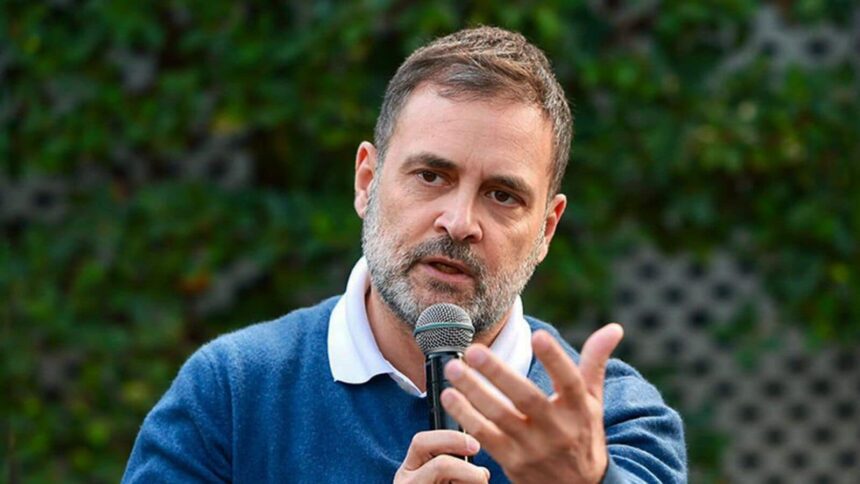The Controversy Surrounding Rahul Gandhi’s Remarks: An In-Depth Analysis
In recent days, Congress leader Rahul Gandhi has found himself at the center of a heated controversy following his remarks about "fighting the Indian state." This statement, delivered during the inauguration of the Congress’s new headquarters in Delhi on January 15, has prompted legal action and widespread debate across India. In this blog post, we will delve into the implications of Gandhi’s statement, the legal response it has elicited, and the broader context of his political activism.
What Did Rahul Gandhi Say?
During the inauguration ceremony, Gandhi accused the ruling party, the Bharatiya Janata Party (BJP), and its ideological parent, the Rashtriya Swayamsevak Sangh (RSS), of having "captured every single institution" in India. He asserted, "We are now fighting the BJP, the RSS, and the Indian State itself." This bold claim struck a nerve in the political landscape, raising allegations of sedition and endangerment of national integrity.
The FIR: Legal Ramifications
As a direct consequence of these remarks, Monjit Chetia filed a First Information Report (FIR) against Gandhi at the Pan Bazar Police Station in Guwahati on January 19. The FIR cites Sections 152 and 197(1)d of the Bharatiya Nyaya Sanhita (BNS), labeling Gandhi’s comments as "acts endangering the sovereignty, unity, and integrity of India," a charge that is cognisable and non-bailable, highlighting the seriousness with which the complaint has been treated.
In his complaint, Chetia contends that Gandhi’s statement poses a "serious threat to public order and national security." He criticizes the Congress leader for allegedly attempting to "delegitimize the authority of the State," suggesting that such rhetoric could fuel unrest and separatist sentiments across the nation. Chetia also implies that Gandhi’s remarks stem from frustration over the Congress party’s repeated electoral losses, further complicating the narrative around his motivations.
Political Backdrop: The White T-shirt Movement
In the wake of the controversy surrounding his statement, Rahul Gandhi launched the ‘White T-shirt Movement’ on the same day the FIR was filed. This initiative calls for a collective stand against injustice and inequality in India. During a speech advocating for the movement, Gandhi claimed that Prime Minister Narendra Modi’s government has neglected the poor, focusing instead on enriching a select group of capitalists. He stated, "Today, the Modi government has turned its back on the poor and the working class and has left them to their own devices."
Through this movement, Gandhi aims to mobilize support for those affected by rising inequality and social injustice, a theme that will likely resonate with many citizens amid ongoing economic disparities exacerbated by the COVID-19 pandemic.
Public Reaction and Future Implications
The backlash against Gandhi’s comments has ignited debates across various platforms, with opinions divided. Supporters argue that his statements are a necessary critique of the current government’s policies and an expression of democratic dissent. Critics, however, contend that such rhetoric undermines national unity and could incite divisions within the country.
The legal proceedings initiated by the FIR may serve as a pivotal moment in Indian politics, raising questions about the limits of free speech and political expression in a rapidly changing political climate. As the situation develops, the implications of Gandhi’s words will likely continue to stir discussions regarding the role of opposition leaders in India and the nature of dissent in a democratic society.
In conclusion, while Rahul Gandhi’s comments have resulted in legal action and public debate, they also reflect a broader struggle within India concerning economic inequality, political representation, and the accountability of those in power. The response to these controversial statements will not only shape Gandhi’s political future but potentially impact the strategies and narratives of opposition parties leading into upcoming elections. As citizens and spectators of this unfolding drama, it remains essential to engage with these critical issues that lie at the heart of India’s democratic discourse.










